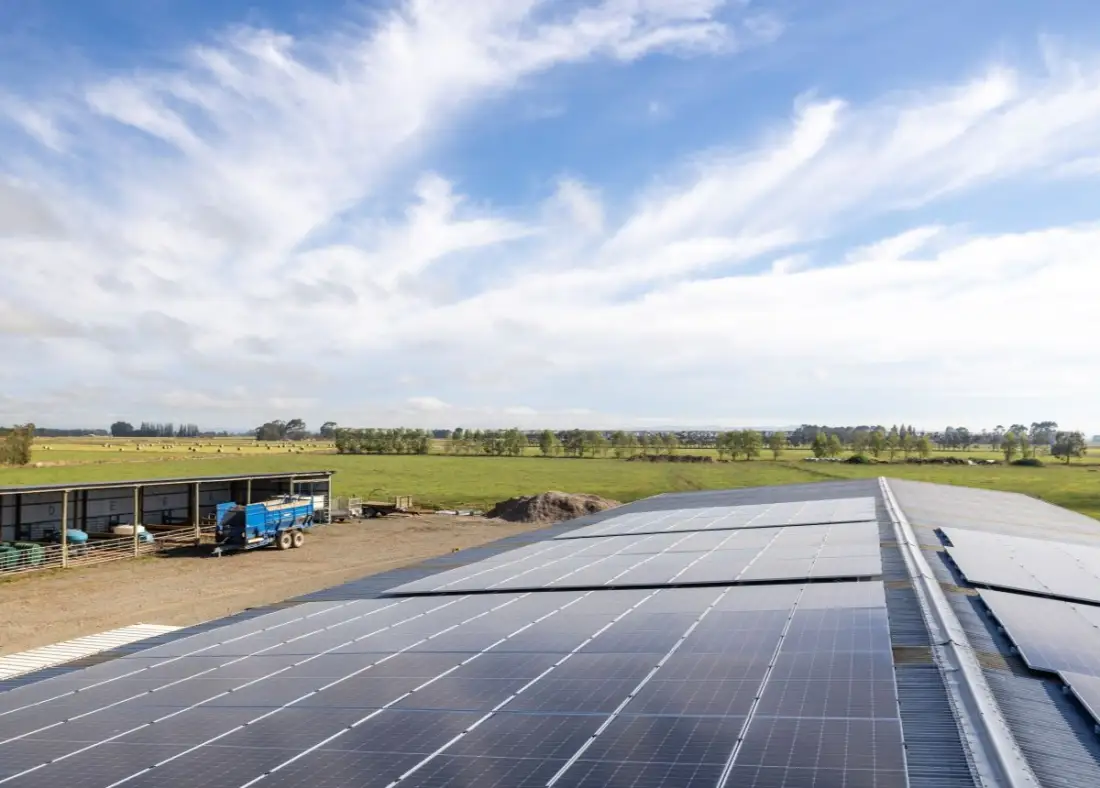On-farm solar and battery storage is a practical, viable option to help New Zealand farms reduce on-farm costs, improve energy resilience, and drive long-term energy security. Find trusted information to help you unlock the potential of solar for your farm and learn from other farmers who are leading the way.
Solar on farms information hub
Whether solar makes sense for your farm depends on your electricity use, site conditions, budget, and future plans.
Our tailored, independent resources walk you through the process - from working out if a solar and battery system is right for your farm, to getting the full benefit from it.
Save money and improve resilience
For many farms, energy is one of the costs that can be actively managed. The right solar system can:
- provide greater certainty over long-term energy costs
- offset rising electricity prices
- reduce reliance on grid electricity during daylight hours
- support critical operations during outages when paired with a battery
- allow surplus power to be exported to the grid, where available
- improve energy security in rural areas where supply can be less reliable.
See how other farmers are using solar
We’re working directly with a group of farmers and growers who are installing solar and battery systems on their farms.
As these systems are installed and become operational, we’ll be developing additional information and sharing insights from their experience to show how it works in practice across a range of farm types.
Solar helpline for farmers and growers
We have a dedicated helpline for farmers and growers, providing independent, practical guidance to help you make informed decisions about solar for your farm. Our team can help with:
- estimating likely system size, savings, and payback
- comparing quotes and understanding key differences
- navigating consenting and connection issues
- working through practical challenges during planning or installation.
Call the team on 0800 300 643, or email us at solar@eeca.govt.nz
Stay up to date
You can sign up to receive updates about Solar on farms using the form below. We’ll share new tools, resources, and updates from our demonstration farms through these updates.
Case study: Kaiwaiwai Dairies
In 2021, Kaiwaiwai Dairies in South Wairarapa installed a 54 kW ground-mounted solar PV system near their switch shed for optimal access and minimal infrastructure disruption.
Farm director Aidan Bichan sees solar as a no-brainer, especially for dairy farms with large power demands.
“The financial benefits have been straightforward: we’re saving money on power, which is only going to get more expensive. Plus, there are loans available that make the investment easier.”
Case study: Forest Lodge Orchard
Central Otago cherry orchard Forest Lodge is the world’s first fully electrified, fossil-fuel-free commercial orchard. Read about how the 6-hectare operation has replaced all diesel-dependent machinery and infrastructure with electric alternatives powered by a grid-connected solar photovoltaic (PV) and battery system.
-
Contact us
For questions about Solar on farms, please email us at solar@eeca.govt.nz, or call us on 0800 300 643



